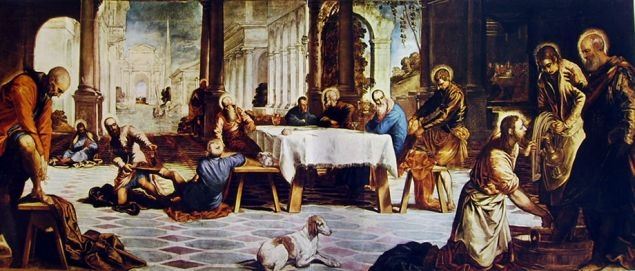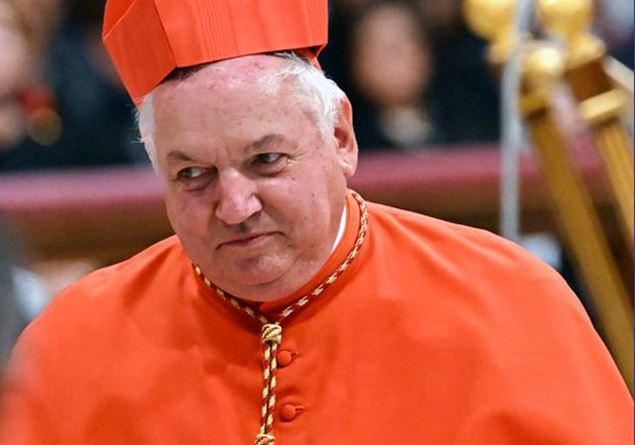In the aftermath of his election at the head of the bishops of France during the Primavera plenary assembly, Cardinal Jean-Marc Aveline wrote to his diocesans: “With St. John Paul II, I wanted to repeat to the bishops:” Don’t be afraid! “. When the Lord is on the boat, there is often a storm. But neither the foam of the days, nor the anguish of the times, which we will always face courageously, can prevail over the divine sweetness of the Risen Christ! ». It was precisely on April 2, the feast of St. John Paul II, near the Lourdes cave, that this 66 -year -old purple was elected in the first round, in less than ten minutes, with 80% of the votes: the evident proof of its satisfaction between the French bishops. After the terrible crisis of the sexual abuse that shaken the Church of France, they have chosen a shepherd as a guide for which “spiritual roots is necessary to return to the essential”, as he explained to the press, eager to take care of the episcopal collegiality and to commit the Church to come out of itself with a decidedly missionary impulse. «It is the pride that corrodes the Church. Instead of stubbornly seeking to protect himself as an institution, he must accept to lose everything to earn Christ. His salvation is in conversion to the Gospel, “he explained.
Already distinguished in Rome for his great intellectual and pastoral qualities and for his free vision of things, Aveline had been elected in the autumn of 2024, together with the bishop of Vilnius, to represent all the European Catholic churches within the ordinary Council of the General Secretariat of the Synod, chaired by Pope Francis. He is also a member of the influential Dicastery for the bishops and his name is now in the list of the main papabili. In the Vatican, the name of Jean-Marc Aveline had initially circulated for the guidance of the Pontifical Council for the interreligious dialogue-of which he has been a consultation since 2008-but the Pope preferred to keep him on the territory of the Alps, appointing him Archbishop of Marseille on August 8, 2019 and creating Cardinal in 2022, recognizing in him the stature of a shepherd capable of instilling the “daughter”. The firstborn of the Church ”, the man capable of writing a new ecclesial page for French Catholicism.
Symbol of a “vintage change”, in which the Church is less worried about affirming its identity in front of a centuries-old society and more eager to serve God and the world as it is, Jean-Marc Aveline-known for its ability to listen and relate to people carefully and delicately-has become a true figure of reference for the universal Church. He loves to repeat that “the Church does not have its center of gravity in itself, but in the relationship that God has with the world”. The rooting in concrete life is, in fact, the distinctive trait of its theological thought. “His strength is not only theological, he is also relational, because he never forgets that before the theses and theories there are human beings”, a friend of his testified to me, describing him as the opposite of an ideologue. The fact is that Cardinal Aveline draws this attitude from the painful experience of the uprooting of Pieds-noes (French settlers) After the independence of Algeria in 1962.
Algeria is in fact the family cradle of Jean-Marc Aveline, one of the rare French prelates of origin Pied-noir. Born on December 26, 1958 in West Algeria, he lived in North Africa with his parents and two sisters, before the family landed in France, initially in the Parisian region, then in the neighborhoods north of Marseille. In that popular context, his parish priest, Father Jean Arnaud, poet and mystical, taught him to love “a Marian and eschatological Church”, a light church, field hospital, Francesco would say, “capable of leaving quickly for unexpected visits”, where “communion comes before the organization and Mercy prevails over the judgment”.
After the studies of theology at the university seminar of the Institut Catholique in Paris, he became director of the studies of the Interdiocese Seminary of Marseille, responsible for vocations, and in 1992 he founded the Institute of Sciences and Theology of Religions (Istr), then the Catholic Institute of the Mediterranean. Appointed Vicar General of the Diocese of Marseille in 1998, he obtained his doctorate in religions in 2000, he was appointed auxiliary bishop of the same diocese in 2013, and six years later he became archbishop. “Communion in the Church is not the juxtaposition of the tendencies, but a force that comes from the Eucharist”, thus summarizes his will to serve the unity of the flock entrusted to him, not hesitating, among other things, to celebrate according to the ancient rite to accompany the faithful linked to it. His family experience – the trauma of exile lived as a child, the death of the two sisters a short time, the loneliness in supporting and consoles the elderly parents – has forged in him a particular attention to those who suffer or are on the margins. Joyous shepherd from the contagious faith, he is interested in the problems of the uprooted people, of different origins and in difficulty of integration, reflecting on concrete solutions together with local administrators, who are not afraid to consult and consult. Telling and sensitive, the character of Jean-Marc Aveline can really be described with a phrase by Van Gogh: “There is nothing more poetic than to love people”.
Will he be the future John XXIV, repeatedly evoked by Francesco speaking of his successor?








